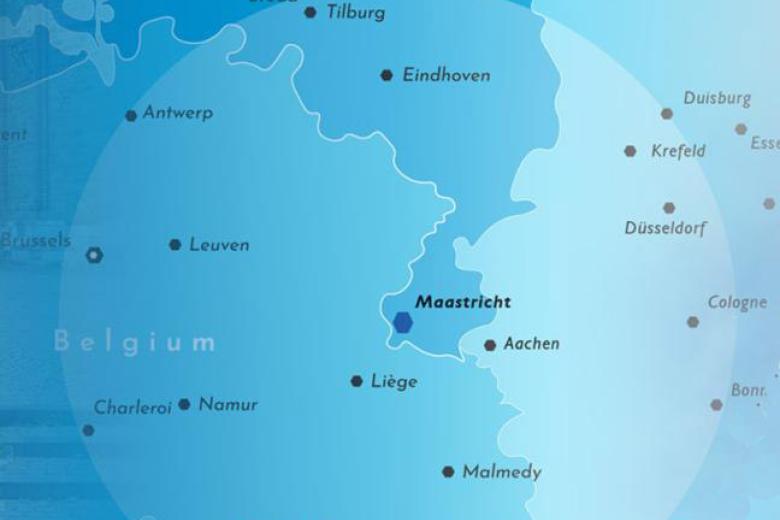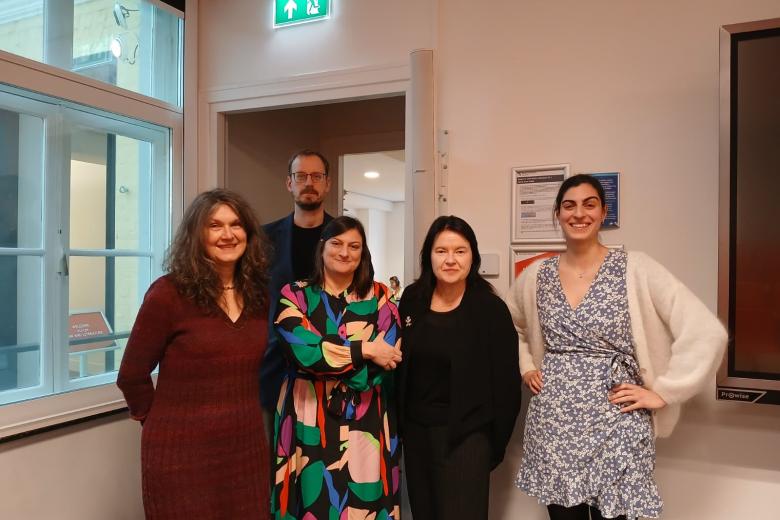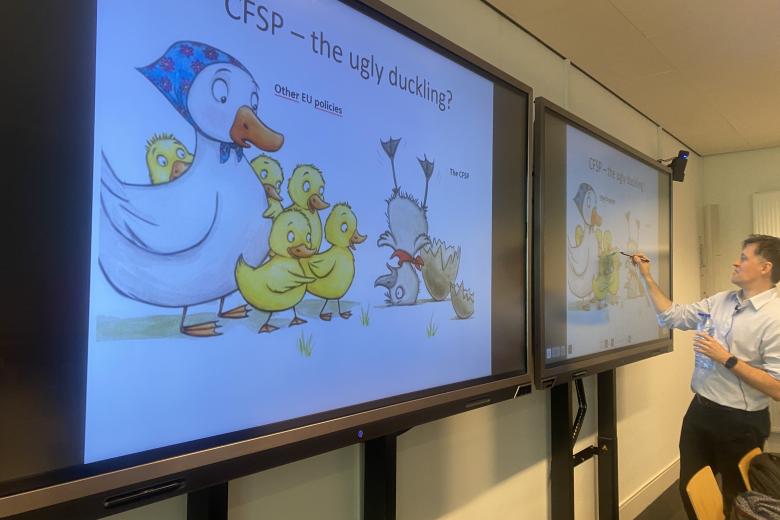Maastricht University Students Present Policy Solutions at European Commission Conference
On October 18th, students from the Economics of Transition and Resilience course at Maastricht University had the unique opportunity to present their work at the 3rd Maastricht University/European Commission DG ECFIN European Student Conference on the Economics of Transition and Resilience, hosted by the European Commission. This event was a valuable platform for students to showcase their innovative solutions to real-world policy challenges in collaboration with the European Commission.
Throughout the course, led by Professor Mark Sanders and guided by course tutor Eoghan O'Connell, students were tasked with designing original policies and writing policy papers in response to critical transition-related issues posed by representatives of the European Commission. The policies created spanned a wide range of topics crucial to Europe’s future, including decarbonization of agriculture, overcoming technology bottlenecks in the green transition, green industrial policy, sustainable water management, and the specific challenges of the green transition in Spain and Germany.
Six sessions were held in total, each focused on one of these vital issues, with students presenting their proposals to Commission representatives and experts from the respective country desks within the Commission. The level of depth, creativity, and practicality displayed in their policy recommendations left a lasting impression on the Commission. So much so that several representatives requested final copies of the students' policy papers once submitted, showing the potential impact these young minds could have on future EU policies.
Students noted that what made the course and experience truly unique was its blend of traditional economic education with more recent, holistic approaches that integrate environmental and sustainability concerns. Additionally, they noted the shift from purely theoretical concepts to the practical application of these modern economic ideas in real-world policymaking pushed themselves to think critically and adaptively.
In conclusion, the 3rd Maastricht University/European Commission DG ECFIN European Student Conference on the Economics of Transition and Resilience provided an exceptional platform for students to merge theoretical knowledge with practical application, addressing some of the most pressing challenges of our time. The experience not only showcased the student's ability to create thoughtful and innovative policy solutions but also emphasized the growing need for economists who can integrate sustainability and environmental considerations into their work. As these students prepare to submit their final papers, they are already contributing to the discourse that will shape Europe's future economic and environmental strategies.
Also read
-
DigiMach places Meuse-Rhine Euroregion at the heart of industrial digitalisation
DigiMach (Digital Machining) is a new cross-border project uniting Belgium, Germany, and the Netherlands around a common goal: accelerating the digitalisation of the machining industry in the Meuse-Rhine Euroregion.
-
Globalisation & Law Network seminar with Áine Ryall
On 24 November 2025, the Globalisation & Law Network, together with the Institute for Globalisation and International Regulation (IGIR) held the seminar with Professor Áine Ryall.
-
Guest Lecture: Lóránt Havas explores current challenges in the EU’s CFSP
Lóránt Havas delivered a guest lecture on the EU’s evolving CFSP, discussing key legal developments, institutional challenges, and new defence instruments.